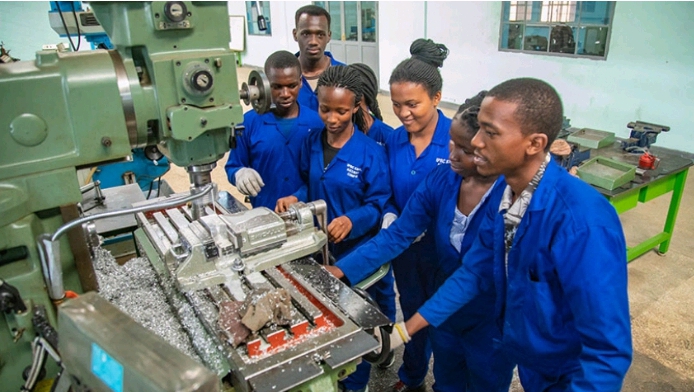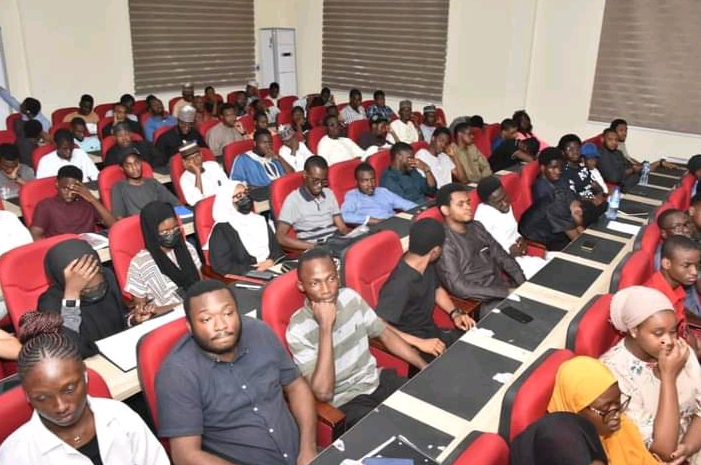The dichotomy between the Higher National Diploma (HND) awarded by polytechnics and the Bachelor of Science (BSc) degree conferred by universities in Nigeria was intensely debated in the 9th Assembly. The debate seeks to elevate the status of polytechnic education to university education to ensure equal recognition and opportunities for graduates of both institutions without looking at the distinctive objectives for establishing both educational institutions. This blog post tries to unravel the far-reaching implications of equating both types of education on an artificial scale and the unique value that they both contribute to society.
Foremost, it is essential to recognize and appreciate the distinct value and purpose that polytechnic education brings to the table. Polytechnics are primarily designed to cultivate job-specific skills, practical expertise, and industry-relevant competencies. It focuses on delivering hands-on education and training that directly applies to real-world contexts. The curricula in polytechnics are specifically tailored to meet the demands of various industries: to produce graduates who can readily contribute to the workforce and effectively tackle industry-specific challenges.
Read Also: Prioritize Digital Skills In Nigeria’s Education Curriculum For Future-Ready Workforce
Polytechnic graduates are equipped to excel in handling practical tasks and carrying out their responsibilities by adhering to established procedures and protocols under the guidance of higher-level professionals. They usually excel at executing tasks according to standard procedures, and when confronted with complex issues or deviations from established protocols, they seek guidance from supervisors. Although they typically have limited decision-making authority, this collaborative approach enables them to contribute positively to their respective disciplines, whether, in engineering or non-technical domain.

Polytechnic institutions serve to equip graduates with specialized skills that are tailored to make meaningful contributions and succeed in a wide range of industries and professional domains. The ideology behind establishing polytechnics is rooted in the recognition that it serves a unique role and addresses definite educational requirements. Therefore, equating it with the university education system poses a significant risk, as it may undermine the unique strengths and contributions of polytechnics to society.
In contrast, the university is well known for its rigorous academic standards, emphasis on research, and comprehensive educational approach. The degree programs have broader goals beyond just gaining knowledge. These programs aim to give students a deep understanding of concepts, theories, principles, and practices. This in-depth knowledge helps students develop critical thinking and analytical skills, which are important for solving complex problems in different professional areas. Moreover, university degree programs focus on developing leadership qualities, and these qualities are valuable in industries, businesses, schools, government organizations, and other types of workplaces. Moreso, the challenging curriculum, research opportunities, and exposure to cutting-edge knowledge provide university graduates with professional excellence.
Read Also: The Potential of Dangote Refinery On Nigeria’s Economic Growth
In addition, universities play a significant role in advancing knowledge through research and expanding students’ intellectual horizons which helps students become lifelong learners and valuable contributors to their fields. The research-oriented approach was designed to encourage graduates to apply scientific and mathematical principles to optimize performance and to enable them to come up with groundbreaking solutions to complex problems. It’s important to recognize that university education aims to make its graduates specialize in designing, developing, analyzing, and managing intricate systems, processes, or projects. Their work involves considering various technical, economic, and social factors, and universities provide the in-depth education necessary to understand and navigate these complexities.

The professors at universities have advanced degrees and encourage critical thinking to create an environment that promotes deep learning. University programs have higher entry requirements, cover a wide range of subjects, and prioritize theory and academic excellence. On the other hand, polytechnics place a strong emphasis on practical skills and vocational training. The lecturers in polytechnics bring extensive industry experience to the classroom that focuses on applied knowledge and enhances students’ job prospects. These programs are generally shorter in duration and may have slightly lower entry requirements, taking into account factors such as work experience.
It is crucial to understand the importance of differentiating between university BSc degree certificates and polytechnic HND certificates in Nigeria. By attempting to equate polytechnics with universities, we risk diluting the quality and purpose of both educational paths. Each offers valuable strengths that cater to different educational needs and career aspirations. Disregarding these distinctions undermines the specialized training and practical skills that polytechnics provide. This may potentially lead to a shortage of skilled workers in the workforce. Recognizing and embracing the unique value of polytechnic education ensures a well-rounded and robust workforce. We should, therefore, celebrate the diversity of educational pathways available, and appreciate the vital role polytechnics play in developing industry-ready professionals. Preserving and nurturing the distinctive strengths of polytechnics will foster a balanced educational landscape that will address the evolving needs of both individuals and industries.
Read Also: The Future of Nigeria Without Petroleum Subsidy
In conclusion, it is imperative for the authority to carefully consider the long-term implications of equalizing these two educational systems and their respective certificates, as well as their ratings in job employment. The existence of two distinct educational paths, with the option of pursuing a Bachelor of Science (BSc) degree from a university or a diploma from a polytechnic, offers students diverse opportunities for higher education. Each path has its unique strengths and caters to different career aspirations. Equalizing the two educational systems would undermine the value and integrity of university education, which provides specialized knowledge, analytical skill, and research capabilities. It would also raise concerns about the quality and international competitiveness of Nigerian graduates.
Instead, the authority should uphold the significance of maintaining a clear distinction between the two systems of education. By recognizing and respecting the unique contributions of each path, we can foster a diverse and inclusive higher education landscape. This approach will ensure that students can pursue their chosen paths with confidence, employers can identify the specific skills and expertise they require, and the overall workforce can thrive with excellence and innovation. This blog post encourages the Nigerian Authority to prioritize the long-term strength and reputation of our higher education system by preserving the distinctiveness of university and polytechnic education to maintain Nigeria’s position as a globally competitive hub of higher learning.
Idowu E. Faleye, a certified Data Analyst, Political Activist, and writer, is a graduate of Politics & Public Administration. He’s the Founder/Chief Data Officer at EphraimHill Data Blog –a Data Reporting Site that is niche in Politics & Society. He can be reached at +2348132100608. or ephraimhill01@gmail.com











































![The Trend of Insecurity in Nigeria. [Part 2]](https://ephraimhilldc.com/wp-content/uploads/2024/09/Computer-Monitoring-of-Remote-areas.png)


































